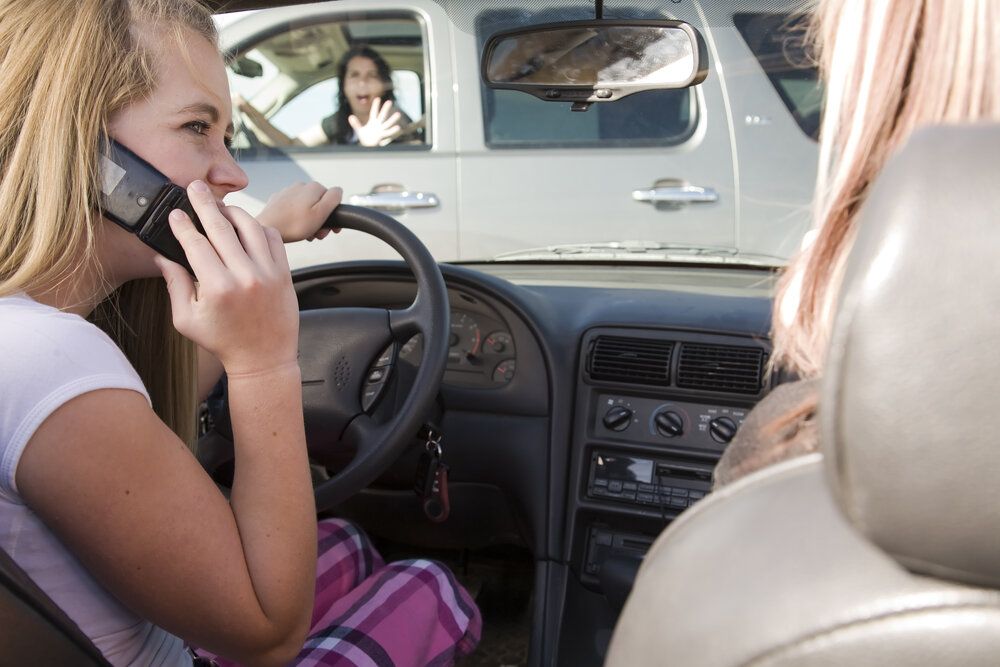
Maine’s texting while driving laws went into effect in 2019 when Governor Janet Mills signed An Act to Prohibit the Use of Handheld Devices and Phones While Driving (LD 165). The law tightened state rules which prohibit texting while driving that has been in place since 2011. A distracted while driving law is also in place in the state of Maine. You can learn about both below.
Under Maine’s law on text messaging, you are not allowed to text while operating a motor vehicle on a public way. The use of the handheld electronic device is defined as “reading or manually composing electronic communications,” including instant messaging, text messaging, and email. (Title 29-A Section 2119).
If you are charged with violating Maine’s law of texting while driving, you may receive a fine of no less than $250 for your first offense. If you are a repeat offender you may be charged with no less than a 30-day license suspension.
You may not text while temporarily stopped at a traffic light, a construction site, stop sign or any other temporary stop on a public way.
According to the Maine State Legislature, it is illegal for you to use, manipulate, talk into or interact with a handheld device or mobile telephone while operating your motor vehicle in a public way (Title 29-A Section 2121).
If you’ve been injured in a car accident by a driver who you believe was texting while driving, you need to contact an attorney. In addition to contacting the authorities, your insurance company, and getting the contact information of the driver who caused the accident, an attorney can help you get a settlement to cover the costs of your injuries and the costs of damage to your car.
Maine has a law about distracted driving under which it is illegal to engage in any activity that is not necessary to the operation of the vehicle, and impairs, or is reasonably expected to impair, your ability to safely operate the vehicle. Failure to maintain your vehicle is a traffic infraction. (Title 29-A Section 2118).
Yes, GPS can be active while driving, but if you need to change an address, for example, it is required by law that you pull over to the side of the road.
Yes, you can answer your phone while driving but you must use the hands-free option. You are not to hold the phone to operate it. If the phone is affixed to the vehicle you may use your hand to swipe, push or tap a button to answer.
Yes, you can use your phone if it is in your pocket, cup holder, bag, or seat, but you cannot use your hands to tap, swipe or push a button on the phone unless it’s affixed to your vehicle.
Yes, if you are under the age of 18, or have your learner’s permit only, you are not permitted to contact emergency personnel (like police officers or other emergency personnel) via handheld device while operating a motor vehicle (you are permitted to do so if over the age of 18, see below).
The use of a mobile telephone or a handheld electronic device is allowed within your scope of employment “as permitted under Federal Motor Carrier Safety Administration regulations.” (via Maine Legislature). This exception also applies if you are a school bus driver.
You are permitted to contact emergency personnel like police officers or other emergency personnel. If you are under the age of 18 or operating a vehicle with a permit you are not granted this exception.
There are a number of good resources that cover more scenarios:
If you’ve been injured in a car accident by a driver who you believe was driving distracted, you need to contact an attorney. In addition to contacting the authorities, your insurance company, and getting the contact information of the driver who caused the accident, an attorney can help you get a settlement to cover the costs of your injuries and the costs of damage to your car.
Contact Mann Law for a free consultation. Learn more about Mann Law, a female-run law firm.